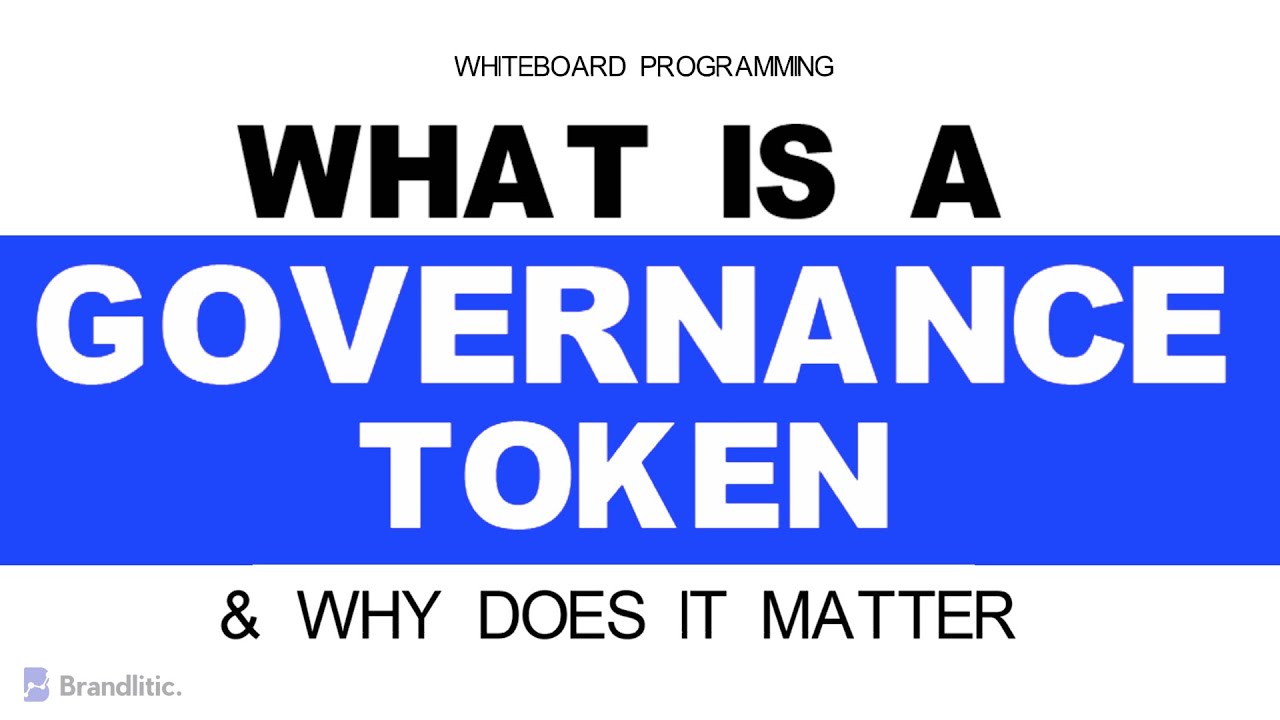Understanding Cryptocurrency And Its Use In Voting And Governance Systems - Cryptocurrency And Voting
Cryptocurrency is a digital or virtual currency that uses cryptography for security and operates independently of a central bank. Understanding cryptocurrency and its use in voting and governance systems has gained significant attention in recent years due to its potential for revolutionizing traditional financial systems.
Author:Gordon DickersonReviewer:James PierceFeb 26, 202346.6K Shares638.8K Views

Cryptocurrency is a digital or virtual currency that uses cryptography for security and operates independently of a central bank.
Understanding cryptocurrency and its use in voting and governance systemshas gained significant attention in recent years due to its potential for revolutionizing traditional financial systems.
However, the application of cryptocurrency goes beyond financial transactions. One area of interest is its use in voting and governance systems.
This article aims to provide an in-depth understanding of cryptocurrency and its use in voting and governance systems.
Understanding Cryptocurrency And Its Use In Voting And Governance Systems
The use of cryptocurrency in voting and governance systems has gained attention as a potential solution for enhancing the security and transparency of these processes.
In traditional voting systems, the integrity of the system relies on the trustworthiness of the central authority. However, this trust can be compromised due to human error, corruption, or hacking.
By using a blockchain-based voting system, the need for a central authority is eliminated, and the voting process becomes more secure and transparent.
Each vote is recorded on the blockchain, making it impossible to tamper with the results. Additionally, since the blockchain is distributed, it is not subject to a single point of failure, ensuring the continuity of the system.
Several blockchain-based voting systems have been developed, including Horizon State, Follow My Vote, and Votem. These systems aim to provide a secure, transparent, and tamper-proof voting process that enhances the integrity of the system.
Cryptocurrency's use in governance systems is also gaining attention.
Blockchain-based governance systems, also known as decentralized autonomous organizations (DAOs), allow individuals to participate in decision-making processes and allocate resources without the need for a central authority.
This provides a more democratic and decentralized approach to governance, which is more resistant to corruption and manipulation.
Several DAOs have been created, including the DAO, which was launched in 2016 on the Ethereum blockchain. The DAO aimed to create a decentralized venture capital fund that would be managed by its members.
However, it was hacked shortly after launch, resulting in the loss of millions of dollars worth of Ethereum. Despite this setback, the DAO has paved the way for the development of other DAOs, including MakerDAO and MolochDAO.
Challenges And Limitations
While the use of cryptocurrency in voting and governance systems has the potential to enhance the security and transparency of these processes, several challenges and limitations need to be addressed.
One of the main challenges is the issue of voter privacy. Since all transactions on the blockchain are public, maintaining voter anonymity is a significant challenge. Several solutions have been proposed, including the use of zero-knowledge proofs and homomorphic encryption, which allow voters to prove that their vote is valid without revealing their identity.
Another challenge is the issue of voter accessibility. Cryptocurrency-based voting systems require voters to have access to the internet and the necessary technical knowledge to participate in the process. This could lead to exclusion and limit the participation of certain groups, such as the elderly and those living in rural areas.
Finally, the issue of scalability is also a limitation. Blockchain-based systems require significant computational power to maintain the integrity of the system.
As the number of users and transactions increases, the system could become slow and inefficient. This issue can be addressed through the use of sharding and other scaling solutions, but these solutions are still in their infancy and require further development.
The Benefits Of Cryptocurrency In Voting And Governance Systems
Cryptocurrency has several benefits when it comes to voting and governance systems.
Firstly, it enables secure and transparent voting by eliminating the need for a central authority to count and verify votes.
Cryptocurrency-based voting systems use blockchain technology to create a decentralized ledger that records all transactions, ensuring that every vote is recorded and cannot be tampered with.
This enhances the integrity of the voting process and helps prevent fraud and manipulation. Secondly, cryptocurrency can also increase voter participation by providing a more accessible and convenient way to vote.
Traditional voting systems often require voters to travel to a physical location and stand in long lines, which can be a barrier to participation, particularly for those with disabilities or who live in remote areas.
With cryptocurrency-based voting systems, voters can participate from anywhere with an internet connection, making voting more accessible and inclusive.
Finally, the use of cryptocurrency in governance systems can enhance transparency and accountability.
By using blockchain technology to record transactions, it becomes possible to track how funds are being spent and ensure that they are being used for their intended purpose. This can help prevent corruption and increase public trust in the governance process.
How Blockchain Technology Enhances The Integrity Of Voting Systems
Blockchain technology is a critical component of cryptocurrency-based voting systems. By creating a decentralized ledger that records every transaction, blockchain technology ensures that the voting process is secure and transparent.
This is because each vote is recorded on the blockchain and cannot be altered or deleted, providing an immutable record of the voting process.
Blockchain technology also enhances the integrity of voting systems by eliminating the need for a central authority to count and verify votes. Instead, the blockchain network itself verifies and records every vote, making it more difficult for fraud and manipulation to occur.
Finally, blockchain technology ensures that the voting process is transparent by making all transactions publicly visible on the blockchain. This enables anyone to audit the voting process and verify that it has been conducted fairly and transparently.

What is a Governance Token Explained in Crypto | Why are Governance Tokens Valuable
The Potential For Decentralized Autonomous Organizations In Governance
Decentralized autonomous organizations (DAOs) are an exciting new development in the world of cryptocurrency and governance. A DAO is a decentralized organization that operates autonomously based on a set of rules encoded in smart contracts.
These contracts govern how the organization operates, how decisions are made, and how funds are allocated.
DAOs offer several potential benefits for governance, including increased transparency, accountability, and efficiency. By operating on a decentralized blockchain network, DAOs are more resistant to corruption and manipulation.
This is because the rules governing the organization are encoded in smart contracts that cannot be altered without the consent of the network participants.
Furthermore, DAOs offer a more democratic and inclusive approach to governance. Instead of being controlled by a central authority, decisions are made through a decentralized voting process, with each participant having an equal say in the decision-making process.
This can lead to more equitable and fair governance, particularly in societies where power is concentrated in the hands of a few.
People Also Ask
What Are Decentralized Autonomous Organizations (DAOs)?
Decentralized autonomous organizations (DAOs) are decentralized organizations that operate autonomously based on a set of rules encoded in smart contracts. They offer potential benefits for governance, including increased transparency, accountability, and efficiency.
How Can Cryptocurrency Enhance Transparency And Accountability In Governance?
By using blockchain technology to record transactions, it becomes possible to track how funds are being spent and ensure that they are being used for their intended purpose. This can help prevent corruption and increase public trust in the governance process.
What Are Some Challenges To Implementing Cryptocurrency-based Voting And Governance Systems?
Challenges include ensuring voter privacy, addressing accessibility issues, and scaling the technology to handle large-scale voting.
What Is The Future Of Cryptocurrency In Voting And Governance Systems?
As technology continues to evolve, we can expect to see further development and adoption of cryptocurrency-based voting and governance systems. There will need to be ongoing efforts to address the challenges associated with implementing these systems in a way that is secure, accessible, and equitable for all.
Conclusion
Understanding cryptocurrency and its use in voting and governance systems has the potential to revolutionize traditional financial systems, but its application goes beyond financial transactions.
The use of cryptocurrency in voting and governance systems can enhance the security, transparency, and decentralization of these processes.
Blockchain-based voting systems eliminate the need for a central authority, making the process more secure and transparent. Decentralized autonomous organizations provide a more democratic and decentralized approach to governance, which is more resistant to corruption and manipulation.
Jump to

Gordon Dickerson
Author
Gordon Dickerson, a visionary in Crypto, NFT, and Web3, brings over 10 years of expertise in blockchain technology.
With a Bachelor's in Computer Science from MIT and a Master's from Stanford, Gordon's strategic leadership has been instrumental in shaping global blockchain adoption. His commitment to inclusivity fosters a diverse ecosystem.
In his spare time, Gordon enjoys gourmet cooking, cycling, stargazing as an amateur astronomer, and exploring non-fiction literature.
His blend of expertise, credibility, and genuine passion for innovation makes him a trusted authority in decentralized technologies, driving impactful change with a personal touch.

James Pierce
Reviewer
James Pierce, a Finance and Crypto expert, brings over 15 years of experience to his writing. With a Master's degree in Finance from Harvard University, James's insightful articles and research papers have earned him recognition in the industry.
His expertise spans financial markets and digital currencies, making him a trusted source for analysis and commentary. James seamlessly integrates his passion for travel into his work, providing readers with a unique perspective on global finance and the digital economy.
Outside of writing, James enjoys photography, hiking, and exploring local cuisines during his travels.
Latest Articles
Popular Articles
